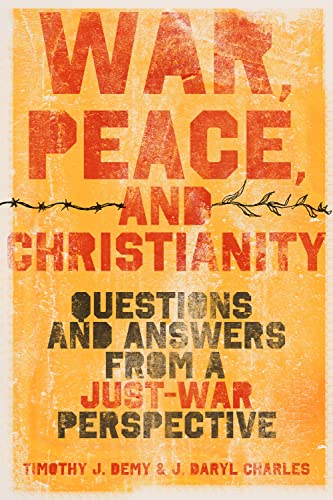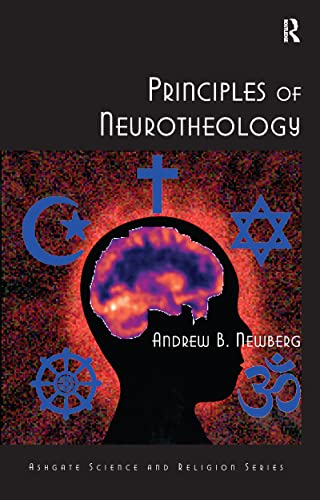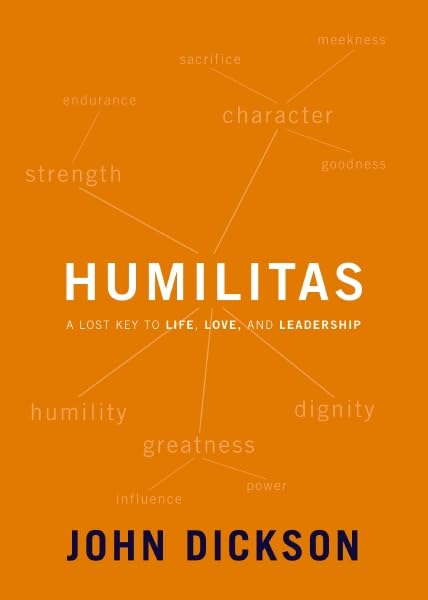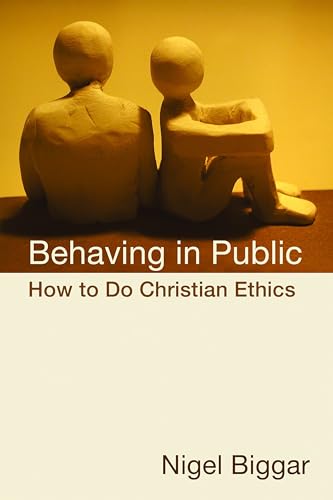War, Peace, and Christianity: Questions and Answers from a Just-War Perspective
Written by J. Daryl Charles and Timothy J. Demy Reviewed By Charlie TrimmThis book collects answers to common questions about just war and its relationship to Christianity. The 104 questions are divided into six categories based on different perspectives (philosopher, historian, statesman, theologian, combatant, and individual) and receive answers ranging in length from a paragraph to several pages.
The first section deals with the philosopher, including the topics of natural law, the definition of just war, its relation to pacifism, and a few of the common critiques of just war. The authors emphasize that just-war theory is for all people, not just Christians, as justice must be universal (p. 50). Peace is the presence of justice, not the absence of conflict, because the latter can be imposed unjustly as well as justly: “The Mafia and tyrannical dictators, after all, know and impose a peace that is illicit” (p. 59, cf. 52, 55). While pacifists are for peace, just warriors seek the restoration of justice (pp. 66-70). The authors frequently argue that just-war theory is a mediating position between militarism and pacifism (e.g., p. 21).
The second section looks at questions that would interest a historian, including the history of just war in the Christian tradition, non-Christian manifestations of just war, and a brief analysis of several wars from a just-war perspective, although they do not devote questions to the wars of the twentieth century. The third section moves on to the statesman, exploring practical questions about conducting just wars from the perspective of governments. The public, it is argued, should not be the ones to make decisions about war because they do not possess sufficient information (pp. 179, 304). Justice is an important theme for the authors: “Peace is not to be understood as the absence of conflict; it is rather the fruit or by-product of a justly ordered society” (p. 159, italics in original). The three core criteria of just-war theory are just cause (usually involving the defense of the innocent), proper authority, and right intention, although their use requires wisdom and counselors (pp. 161-63, 177). They argue that preventative war does not fit with the just-war criteria (p. 218). Regarding several questions that have become important in recent decades, Charles and Demy believe that nations are not required to receive consent from the United Nations to go to war (p. 182); they are less than optimistic about the effectiveness of peacekeeping forces in areas where fighting has already begun, such as the former Yugoslavia (p. 205); and they recognize the importance of preparing for post-war realities, though they believe that this involves so many variables that it is very difficult to anticipate what will be needed (pp. 205-8, 239-47).
The fourth section looks at just war from the perspective of the theologian, covering specific biblical texts, general theological ideas in relation to just war, and views of just war in non-Christian religions. They explain most of the peace texts either as dealing with the private realm rather than public policy (pp. 252, 262-63, 294) or as eschatological (pp. 277-78). The brief fifth section examines questions relating to the combatant, including deterrence, nonlethal weapons, mercenaries, and asymmetric warfare. Rather than the individual soldier (who is covered in the sixth section), this section relates to military leadership. The final section is an almost random collection of questions relating to the individual, including self-defense, relating to those with other viewpoints, living in a country involved in an unjust war, Ghandi's contribution to pacifism, whether Jesus' demand for “peacemaking” requires pacifism, C. S. Lewis' view on warfare, the possibility of killing fellow Christians in a just war, and common misunderstandings of just war.
The choice of a question-and-answer format entails several disadvantages. The questions are mostly well organized, but several of them are redundant or oddly categorized (especially in the sixth section). The disjointed format of the book prevents it from being a basic text on just warfare as the authors cannot trace an argument and often repeat themselves. Further, even though the book has many questions, other questions need to be explored in more depth. One of the authors' common arguments for the legitimacy of just war is that it is essentially the same type of action as law enforcement (e.g., pp. 72, 75), but this connection and the implications of differences between the two are never explored in any detail. Finally, a brief glance at the wars of the twentieth century would be appreciated; the American Civil War is the last to receive detailed attention.
While the book is disjointed, it still presents a good picture of just warfare and could be helpful as an introductory reference tool. The format would be helpful for someone who wanted to read only a short amount at one time as well as someone who was looking for an answer to a specific question that happens to appear in the book.
Charlie Trimm
Charlie Trimm
Biola University
La Mirada, California, USA
Other Articles in this Issue
Evaluating a new English translation of the Bible can be extremely difficult...
In the November 2009 edition of Themelios, Dane C...
Jonathan Edwards (1703-1758) is remembered today as a saint, scholar, preacher, pastor, metaphysician, revival leader, theologian, Calvinist—the list goes on...
Almost two decades ago I wrote an essay titled " When Is Spirituality Spiritual? Reflections on Some Problems of Definition ...
He was the youngest son of elderly parents. His childhood was secluded and unhappy, which might in some measure account for his lifelong melancholy...






